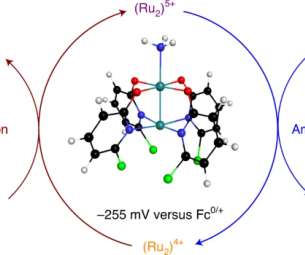UW Madison chemists discover new way to harness energy from ammonia
Green Car Congress
NOVEMBER 12, 2021
A research team at the University of Wisconsin–Madison has identified a new way to convert ammonia to nitrogen gas through a process that could be a step toward ammonia replacing carbon-based fuels. This process can be harnessed to produce electricity, with protons and nitrogen gas as byproducts.


















Let's personalize your content